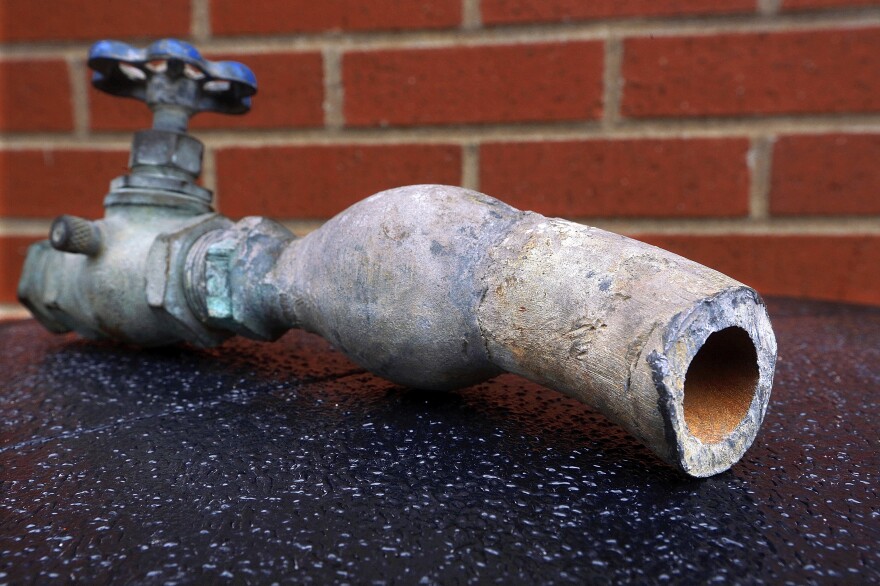Water systems across the country are required to inventory and report the type of pipes used in their systems by October 16 this year. It’s part of a revision to the lead and copper rule made in 2021 aimed at eliminating lead pipes from America’s drinking water infrastructure.
Lead is toxic and harmful if ingested, especially for kids. Lead pipes are still in service across the country, but no one knows how much of it remains active in Idaho.
The Environmental Protection Agency announced this week that more than $28 million dollars will be available to water systems in Idaho, part of $15 billion set aside for lead pipe replacement in the bipartisan infrastructure act.
There are more than 2,000 water systems in the state; from large utilities like Veolia down to tiny homeowners associations which manage their own water. About half are required under the 2021 rule revisions to identify where and how much lead piping exists in their systems.
Lead pipes were banned in 1986, and for anything built after about 1990, inventory is pretty straightforward: no lead.
“A lot of these water systems were put in many, many years ago,” explained Shelley Roberts, CEO of the Idaho Rural Water Association. “There isn't always a record of what exactly is in the ground."
The IRWA represents about 350 small water systems across the state. Roberts said she’s working to help them meet the initial reporting deadline in October. Investigation costs for operations with less than 1,000 users are covered by the Idaho Department of Environmental Quality, using funds previously provided by the EPA. Other grants are available to help offset costs, too.
The grants and low-cost loans are critical, said Tyler Fortunati, Water Division Director with Idaho DEQ.
“Many small communities just couldn’t afford to take on this debt. Some of these projects [without the funding] could put small rural communities into $100-150 a month for their water bill,” he said, noting the federal funding still isn’t enough to cover the full cost.
Roberts said many systems simply lack the available manpower to take on the additional work, and mapping water lines on private property can be a challenge.
“Probably like a lot of people, when I first heard about this, I'm like, ‘well, we'll just declare it's unknown,’” Roberts said. The government has disincentivized that tactic in its regulation. “An unknown is equivalent to, ‘we assume it's lead until you can prove otherwise.’”
A new proposed federal rule would require lead pipes - known or unknown - be replaced within ten years.
Roberts said IRWA is focused on the first phase, and the October deadline. “We're just trying to educate people about how to do the inventory. We've also partnered with DEQ on trying to get education out. So it's really making sure the operators and city leadership are aware of the requirement for the inventory and recognize the importance of it,” she said.
Veolia, the state’s largest water utility, is planning to survey users with postcard mailings in the coming weeks and months. Veolia has no lead in its service system, a spokesperson said, but what’s on the customer side of each water meter isn’t known.
Postcards will generally be targeted at customers with structures built prior to 1990, and buildings the utility doesn’t know the age of.
Roberts said even though records in Idaho are sparse, she doesn’t anticipate too many surprises.
“I don't expect a tremendous amount of lead pipe. It's just going to be the hurdle of complying with the new lead copper rule regulation,” she said.
Idaho DEQ says the $28 million in new funding announced by the EPA this week will be available to systems through an application process later this year.



